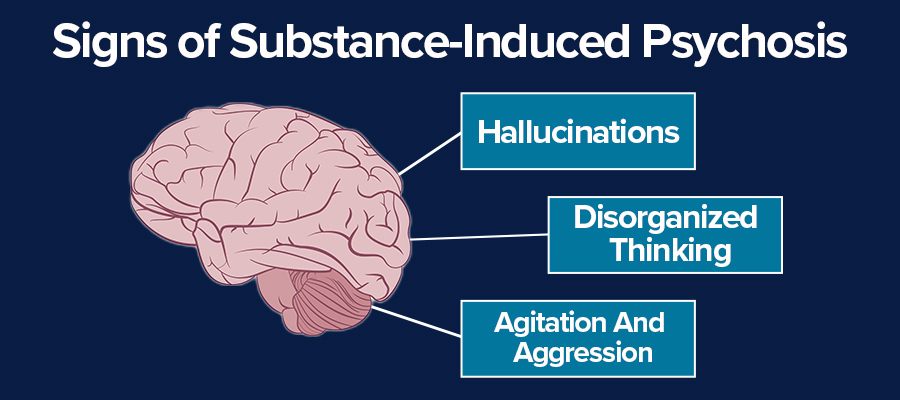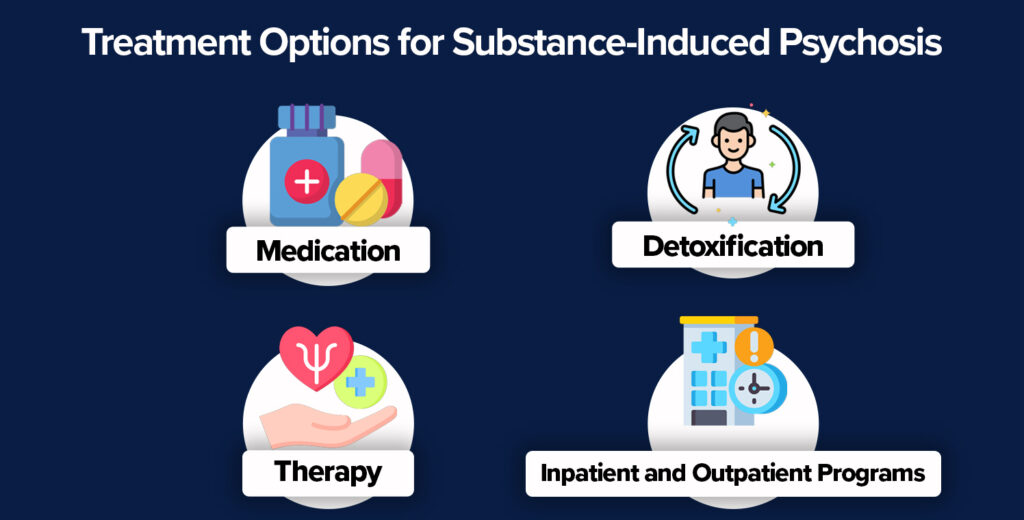Understanding Substance-Induced Psychosis: Signs, Symptoms, and Treatment
- Home
- Blog
- Drug Addiction
- Understanding Substance-Induced Psychosis: Signs, Symptoms, and Treatment
Did you know that approximately 40% of people experiencing first-time psychosis have a history of substance abuse? Substance-induced psychosis is a condition that occurs when substance use triggers psychotic symptoms like hallucinations and delusions. This often-overlooked mental health issue can have devastating effects on individuals and their families, making timely recognition and treatment crucial. With substance abuse becoming increasingly common in today’s fast-paced world, understanding this condition has never been more important.
What Is Substance-Induced Psychosis?
Substance-induced psychosis is a temporary or persistent psychotic state caused by the use of drugs, alcohol, or certain medications. Unlike other mental health conditions such as schizophrenia, this type of psychosis stems directly from substance exposure or withdrawal.
The condition can manifest as episodes of extreme confusion, paranoia, or distorted perceptions, leaving individuals detached from reality. While the symptoms can subside once the substance clears from the body, untreated cases may lead to long-term mental health issues.
Common Substances That Can Trigger Psychosis
Certain substances are more likely to induce psychosis. These include:
- Alcohol: Chronic abuse or withdrawal from alcohol can result in psychotic episodes, often linked to delirium tremens. This severe condition can lead to visual hallucinations and paranoia.
- Stimulants: Drugs like cocaine and methamphetamine are notorious for causing paranoia, delusions, and aggressive behavior.
- Hallucinogens: Substances like LSD, psilocybin, and PCP can cause extreme distortions in perception and reality, which may persist even after the high wears off.
- Cannabis: High-potency marijuana or synthetic cannabinoids like “Spice” have been increasingly linked to psychotic episodes, particularly in adolescents and young adults.
- Prescription Medications: Misuse of steroids, opioids, or certain antidepressants may also lead to psychosis, especially when taken in high doses or combined with other substances.
Each of these substances affects the brain differently, altering neurotransmitters that regulate mood, perception, and behavior.
Signs and Symptoms of Substance-Induced Psychosis

Substance-induced psychosis presents a wide range of symptoms that can vary based on the substance used. These may include:
- Hallucinations: Seeing or hearing things that are not present. For example, an individual under the influence of methamphetamine may believe they are being watched by invisible entities.
- Delusions: False beliefs that defy logic or evidence, such as paranoia or grandeur.
- Disorganized Thinking: Incoherent speech or difficulty maintaining a train of thought.
- Agitation and Aggression: Sudden outbursts or violent behavior.
- Memory Loss or Confusion: Difficulty recalling events or understanding surroundings.
Symptoms often appear rapidly and can last for hours, days, or weeks, depending on the substance and the individual’s health. Recognizing these symptoms early is crucial for initiating treatment and preventing further harm.
Diagnosis of Substance-Induced Psychosis
Diagnosing substance-induced psychosis is a complex process that requires careful evaluation. Mental health professionals use several methods to confirm the diagnosis:
- Medical History: Understanding the person’s substance use patterns and prior mental health conditions is essential.
- Psychological Assessment: Evaluating the severity and nature of psychotic symptoms through structured interviews.
- Physical Exams and Lab Tests: Ruling out medical conditions like brain injury, infections, or metabolic imbalances that may mimic psychosis.
Studies show that up to 25% of first-episode psychosis cases are linked to substance use, making accurate and timely diagnosis vital for effective treatment.
Risk Factors and Causes
While substance use is the direct cause, several factors can increase vulnerability to substance-induced psychosis:
- Genetics: A family history of mental health disorders can heighten susceptibility.
- Pre-existing Mental Illness: Conditions like depression, bipolar disorder, or anxiety make individuals more vulnerable to psychotic episodes.
- Chronic Substance Use: Long-term abuse of substances, including benzodiazepines, increases the risk of psychosis, particularly during withdrawal. Those struggling with benzodiazepine dependence may benefit from online treatment options to manage withdrawal safely and reduce the risk of severe mental health effects.
- Environmental Stressors: High-stress environments, trauma, or social pressures can act as triggers.
These risk factors highlight the importance of a holistic approach to prevention and treatment.
Treatment Options for Substance-Induced Psychosis

Recovering from substance-induced psychosis involves a comprehensive approach tailored to the individual. Key treatment options include:
- Detoxification: Safely removing the substance from the body under medical supervision to minimize withdrawal symptoms.
- Medication: Antipsychotics, mood stabilizers, and other medications help manage acute symptoms like hallucinations, delusions, and agitation.
- Therapy:
- Cognitive-Behavioral Therapy (CBT): Helps individuals identify and manage triggers.
- Trauma-Informed Therapy: Addresses underlying emotional wounds.
- Inpatient and Outpatient Programs: Structured environments provide stability and access to resources for recovery.
Treatment plans often combine these methods to ensure a well-rounded approach to healing.
Long-Term Recovery and Relapse Prevention
Maintaining recovery requires ongoing effort and support. Here are strategies for sustained mental health:
- Support Groups: Groups like Narcotics Anonymous and family therapy sessions foster accountability and encouragement.
- Healthy Lifestyle Changes: Exercise, proper nutrition, and mindfulness practices can enhance mental and physical well-being.
- Education: Understanding the impact of substances on the brain helps individuals make informed decisions.
- Avoiding Triggers: Learning to identify and steer clear of environments or situations associated with substance use reduces relapse risks.
Relapse rates for substance use disorders are estimated to be between 40% and 60%, emphasizing the need for a strong support system and continued treatment.
Hope and Healing with Cast Treatment Centers
Substance-induced psychosis can feel overwhelming, but recovery is possible with the right support and treatment. Seeking timely professional help is the first step toward reclaiming control over your life. Treatment centers like Cast Treatment Centers specialize in holistic and compassionate care, offering tailored solutions for those facing challenges like substance-induced psychosis. If you or a loved one are seeking comprehensive care, including Mental Health Treatment in Los Angeles, reach out today to start your journey to healing.
_____________________________________________________________________
Reference:
https://academic.oup.com/schizophreniabulletin/article/46/3/505/5588638?login=false
https://academic.oup.com/schizophreniabulletin/article/46/3/505/5588638?login=false
https://www.addictiongroup.org/resources/relapse-rates-statistics/
GET STARTED TODAY!
424-302-2598
CAST Treatment Centers is Proud to Celebrate Over 18 Years
Helping Individuals & Families
Programs
What We Treat
-
Substance Abuse
Insurance
Alumni
Contact Cast Treatment Centers
CAST Treatment Centers
630 N Doheny Drive
West Hollywood, CA 90069
424-302-2598
Email
Administration
632 N Doheny Drive
West Hollywood, CA 90069
424-302-2598
Email
Service Area
CAST Treatment Centers is licensed by the California State Department of Health Care Services. DHCS Certification for Intensive Outpatient and Outpatient Services.
License Number: 190936BP.
Expiration Date: 8/31/2025.
Copyright © 2022 CAST Treatment Centers. All rights reserved.
Privacy Policy | HIPAA | Terms of Use | Site Map


